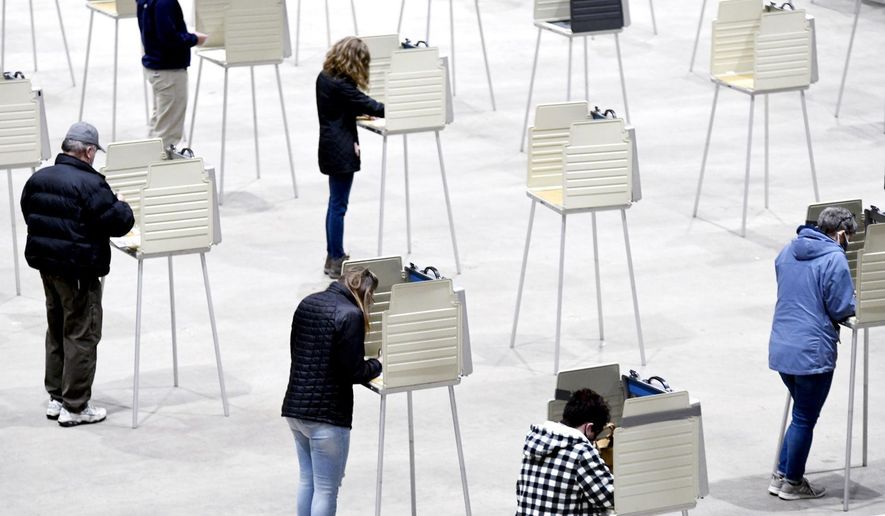Activists are challenging the expansion of Election Day into a full election season with a lawsuit aimed at trying to stuff the genie back in the bottle.
The immediate target is North Dakota, which counts ballots received nearly two weeks after the big day. The broader target is the growing sense that the country has moved beyond the concept of a single day for deciding elections.
“Election Day is supposed to be election day. That’s what Congress said, that’s what people grew up with in this country, and the last two elections it’s become election month,” said J. Christian Adams, president of the Public Interest Legal Foundation.
The foundation brought the lawsuit on behalf of Mark Splonskowski, Burleigh County auditor and a member of the county’s election canvassing board in North Dakota. He says he is forced to violate either state law, which allows ballots to be received and counted up to 13 days after elections, or federal law, which sets Election Day as the Tuesday after the first Monday in November.
The question is likely to come down to what counts as casting a ballot.
North Dakota’s law requires mailed ballots to be filled out and postmarked by the day before the election, though the lawsuit claims they can be counted if they are received before the county canvassing boards meet. That date is 13 days after Election Day.
The state is generous with its absentee policy. It allows anyone to request a mail-in ballot without giving a reason until the day before an election.
In his lawsuit, Mr. Splonskowski says at least 212 ballots received after Election Day last year were counted, including one without a postmark.
The Washington Times has reached out to North Dakota’s secretary of state, which oversees elections, and its attorney general.
Mr. Adams said the issue of post-Election Day ballots grew more important as states rushed to embrace expansive absentee and mailed-ballot rules, particularly during the COVID-19 pandemic.
Several cases involving post-Election Day ballots have risen through the courts, but the Supreme Court has largely batted them down without getting to the heart of the issue that Mr. Splonskowski is raising.
Congress set a national election day in the 1840s to standardize and speed up what had been a month of voting across different states. In the 1870s, Congress fixed the day for all federal contests.
Voting was public in the Colonial days and the early days of the republic. Those eligible showed up at specific times and places to announce their votes — often after candidates plied them with alcohol.
War made absentee voting necessary. Pennsylvania allowed absentee voting for troops fighting the War of 1812, and many Northern and Southern states adopted the practice for 1864. Some voted at their Civil War encampments, and others cast ballots through the mail. Some historians said these were the votes that ensured President Lincoln won a second term.
The practice was generally restricted at first. In recent decades, states have moved to expand the reasons for allowing early or mail voting. Some states now conduct all-mail elections where every eligible voter is automatically sent a ballot.
The pandemic dramatically expanded the number of jurisdictions with permissive mail balloting rules, fueling some skepticism about the integrity of elections. President Trump criticized mail-in voting as “out of control” for the 2020 elections.
Mr. Adams said the delayed deadlines for counting ballots allow elections to “linger and linger.” Meanwhile, ballots are in the hands of the post office.
The lawsuit seeks a declaration from the U.S. District Court of North Dakota that the state’s law violates federal law. If Mr. Splonskowski prevails, Mr. Adams said, other states could face challenges.
Congress has created carve-outs from the law, specifically for military and overseas voters, whose mail-in ballots received after Election Day are counted.
Mr. Adams said that bolsters his argument because it’s proof that Congress must write exceptions when it wants states to circumvent the Election Day law.
“If there’s going to be an extended election, Congress has to give the specific green light on a specific topic,” Mr. Adams said.
He said ballots cast before Election Day don’t raise the same integrity issues because they are ready to be counted before the big day.
Federal courts have ruled on the issue and found early voting to be in accordance with federal law, he said.
• Stephen Dinan can be reached at sdinan@washingtontimes.com.




Please read our comment policy before commenting.